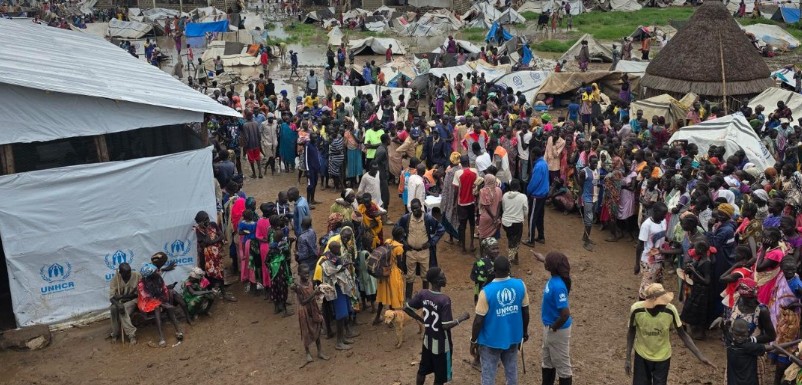Refugee children at risk as nutrition services collapse in Ethiopia

One of the most devastating impacts has been the halt of nutrition services in four out of the seven camps. As a result, close to 80,000 children under five years old are now at risk of life-threatening malnutrition.
Severe cuts to humanitarian assistance have plunged over 395,000 South Sudanese refugees in Ethiopia’s Gambella region into worsening hardship, with aid groups warning of mounting hunger, malnutrition and disease across seven camps.
Gambella, which has sheltered large numbers of South Sudanese refugees since 2014, is facing one of its toughest periods yet after global funding reductions, including major pullbacks from USAID, crippled essential services such as food distribution, healthcare, clean water, and sanitation.
One of the most devastating impacts has been the halt of nutrition services in four out of the seven camps. As a result, close to 80,000 children under five years old are now at risk of life-threatening malnutrition.
At Kule Refugee Camp, one of the largest in the region, Médecins Sans Frontières (MSF) says it is stretched to the limit after years of providing medical support in the area.
“We receive food once a month: maize, wheat, and sorghum, but it always runs out before the month ends. Since last year, there has been a big decline. Some of the items we used to get are no longer provided at all,” said Nyauahial Puoch, a mother who walked nearly 8 kilometres from Tierkidi Camp to seek care for her 17-month-old daughter at MSF’s hospital in Kule.
Since October 2024, food rations have dropped to as low as 600 calories per day—less than a third of the recommended daily intake of 2,100 calories per person.
MSF reports that other camps are facing the same situation. Food deliveries have often been interrupted for months due to supply chain problems and lack of funds. The crisis has led to a 55 per cent increase in child admissions to MSF’s therapeutic feeding centre this year, with half of those children coming from other camps.
“We walked three hours from our home in Akula camp to get to the MSF hospital. Our child had a cough, diarrhoea, and severe malnutrition, and she had to be hospitalised for 15 days until she recovered,” said Kuoth, whose 1-year-old child received care at the facility.
The hospital’s outpatient department has also seen a sharp increase in demand, with a 58 per cent rise in patient numbers compared to the same time last year. Many of the patients come from surrounding camps where services have collapsed.
Maternal health needs are also surging. Antenatal visits have jumped by 72 per cent from last year, adding more pressure to already overstretched health workers.
“We’re receiving more patients from other camps, largely because these services are no longer available locally due to many NGOs withdrawing from the region due to funding cuts. MSF is overwhelmed by the increased patient load, and we fear this number will likely keep rising in the coming months,” said Armand Dirks, MSF’s project coordinator in Gambella.
Compounding the crisis, disease prevention activities have been scaled back, including malaria control efforts, even as the rainy season from May to October leads to a rise in infections.
MSF says it has treated over 23,800 malaria cases since January 2025—more than half from nearby camps—and July alone saw a 125 per cent spike compared to June.
With vital preventive measures such as mosquito net distribution, spraying, and quick access to care being disrupted, the organisation warns the situation may get worse.
“Cases are expected to rise sharply during this peak transmission period. This poses a serious threat to already vulnerable refugees who face heightened exposure to malaria-infected mosquitoes due to overcrowded living conditions and limited sanitation,” said Birhanu Sahile, MSF’s deputy medical coordinator.
Despite operating at full capacity, MSF says the scale of need has grown far beyond what it can manage on its own.
“Without urgent support and interventions from other actors, this crisis will continue to escalate, putting thousands of vulnerable lives at even greater risk. We urge the Government of Ethiopia to take clear and decisive steps in Gambella to advance refugee integration into local services. This includes strengthening the current health care system for everyone and enhancing its capacity to withstand future cuts,” urged Birhanu.
